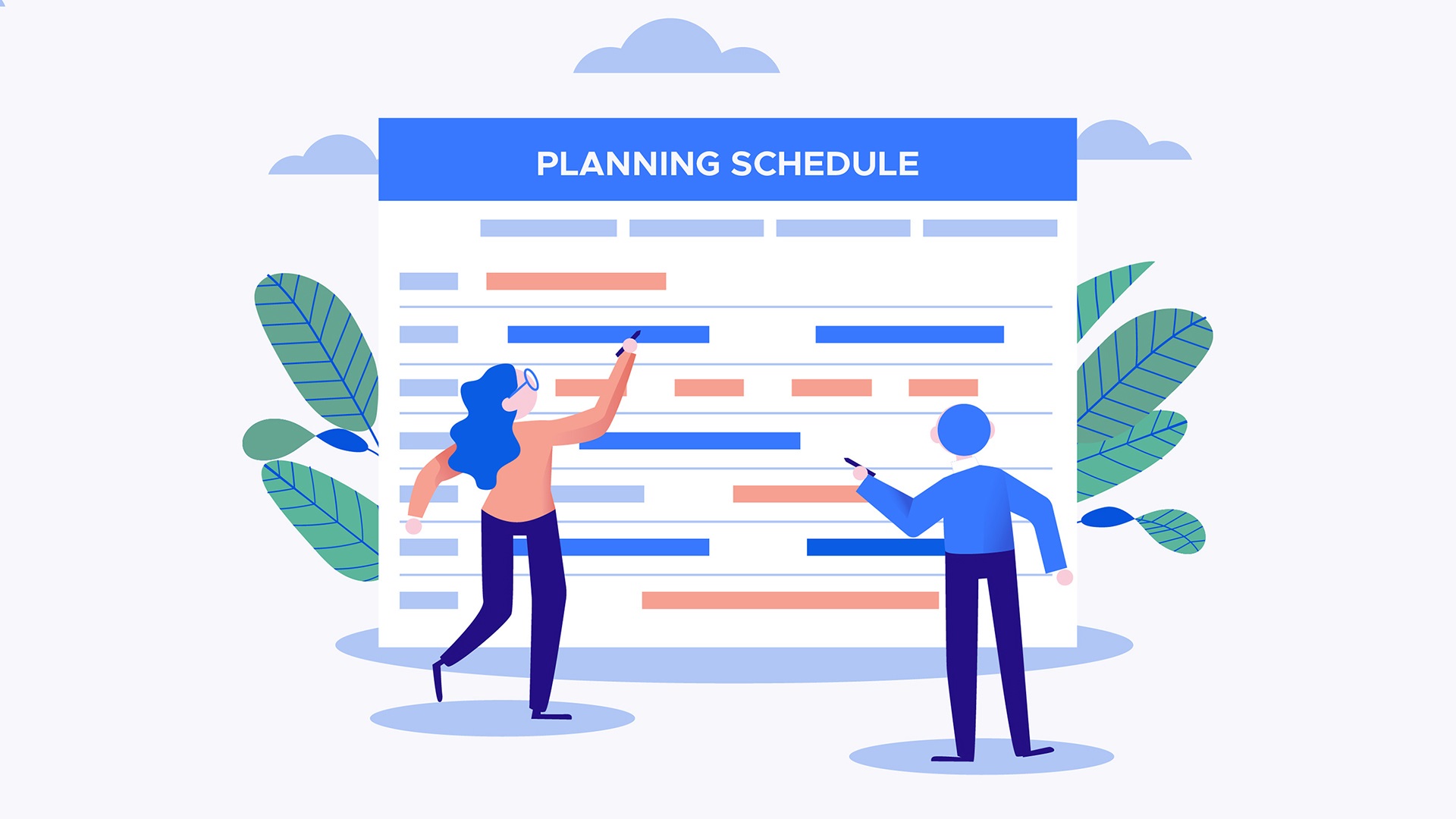
Project Planner Mastery System
Course overview
Projects can impact a company’s overall performance in multiple ways. They usually contain a number of moving pieces that must function “seamlessly” together. Project planning is therefore an essential competency ability in project management.
By carefully analyzing stakeholder needs, scoping projects, engaging with multiple stakeholders, utilizing resources, reducing risks, and suggesting initiatives that offer value to stakeholders, project management demands of today’s enterprises and organizations must adapt.
What is the scope of a project?
The next crucial stage is thorough project planning, which comes after the project has been established and its scope as well as the project team chosen. The foundation of a project life cycle is project planning, which specifies goals and methods for achieving them. The project timeline is created, the project deliverables are specified, the project plans are recorded, and the project requirements are meticulously recorded.
This entails putting together a set of blueprints to assist in directing your team during the project’s commencement, execution, and completion phases. Project managers and all team members need the plans developed during this phase to assist them manage time, money, quality, changes, risk, and other relevant concerns in an effective manner. Additionally, these strategies will assist project managers in managing vendors and suppliers outside of their company and allocating staff resources accordingly. By doing this, the project manager may be sure that the project will be completed on schedule, under budget, and on time.
Introduction
Project planning is usually the most thrilling and difficult part of the process since it requires estimations on the resources, finances, schedules, and tools required to finish the project. In addition, the project manager will have to set up the plans for communicating with stakeholders, as well as any necessary procurement operations and contracts with outside suppliers.
What credentials are required to work as a project planner?
The main ideas of project planning and execution, as well as the elements that contribute to project success, will all be covered in detail in this Training Bee course. Students will also learn how to organize, evaluate, and oversee projects. Students will be introduced to contemporary approaches and learn how to lessen the difficulties associated with different kinds of projects. After completing this course, you will be qualified to build project plans that guarantee projects operate effectively and efficiently by applying your knowledge of project planning methodologies, concepts, and execution methods. Obtaining a project planning certification can change the business landscape and take your career in a new path.
We are The Training Bee, a global training and education firm providing services in many countries. We are specialized in capacity building and talent development solutions for individuals and organizations, with our highly customized programs and training sessions.
Learning Objectives
Upon completing Certified Project Planner Course, participants will be able to:
- In the context of project development, exhibit a thorough understanding of the fundamental ideas, guidelines, and procedures of project planning and design.
- Explain how to define a project by knowing its objectives, setting priorities, and correctly scheduling the time, money, and resources required.
- Creation of project management plans, which comprise, among other things, a project timetable.
- Show that you have a thorough understanding of project design, planning, and stakeholder engagement.
- Describe a project’s critical path, schedule, scope, task dependencies, and risks in detail.
- Determine the essential elements and participants for the project’s success.
- Recognize the different phases of a project’s life cycle and the associated tasks at each phase.
Our Unique Training Methodology
This interactive course comprises the following training methods:
- Journaling – This consists of setting a timer and letting your thoughts flow, unedited and unscripted recording events, ideas, and thoughts over a while, related to the topic.
- Social learning – Information and expertise exchanged amongst peers via computer-based technologies and interactive conversations including Blogging, instant messaging, and forums for debate in groups.
- Project-based learning
- Mind mapping and brainstorming – A session will be carried out between participants to uncover unique ideas, thoughts, and opinions having a quality discussion.
- Interactive sessions – The course will use informative lectures to introduce key concepts and theories related to the topic.
- Presentations – Participants will be presented with multimedia tools such as videos and graphics to enhance learning. These will be delivered engagingly and interactively.
Training Medium
This Certified Project Planner Course training is designed in a way that it can be delivered face-to-face and virtually.
Course Duration
This training is versatile in its delivery. The training can be delivered as a full-fledged 40-hour training program or a 15- hours crash course covering 5 hours of content each day over 3 days
Pre-course Assessment
Before you enroll in this course all we wanted to know is your exact mindset and your way of thinking.
For that, we have designed this questionnaire attached below.
- Give an explanation of project planning within the framework of project management and stress its significance for the entire project life cycle.
- Enumerate and succinctly explain the major stages of a standard project life cycle.
- If any, whatever software or tools for project planning are you familiar with? In what ways do these technologies help with efficient project planning, in your opinion?
- Describe the importance of a clearly defined project scope and how it affects a project’s likelihood of success.
- What role do cooperation and good communication have in the successful planning and implementation of projects?
- What part does risk management play in the project planning stage? Give an illustration of how project planning might be affected by risk management.
- What aspects of a project’s resource allocation should be taken into account? How does a well-planned schedule help a project succeed?
Course Modules
This Certified Project Planner Course covers the following topics for understanding the essentials of the Agile Workplace:
Module 1 – Overview of Project Management
- Project Management Foundations
- Overview of project management principles and techniques
- Essential tools for project management
- Project Lifecycle Stages
- Portfolio Management vs. Program Management
Module 2 – The Project Charter’s Definition
- Specifying a project
- Project Goals and Objectives
- Project Limitations
- Team Assignment
- Roles and Duties in a Team
- Project Tracking and Assessment
Module 3 – Tools & Techniques for Project Design
- Structure of Work-breakdown
- RACI
- Techniques to apply when there is a lot of uncertainty
- Choice Tree
- An approach to progress tracking based on earned value
Module 4 – Management of Project Stakeholders
- Finding the Project’s Stakeholders
- Matrix of stakeholders
- Plan of Communication
- Vital Communication Skills for Projects
Module 5 – Critical Path Analysis, Gantt charts, and project scheduling
- Describe Your Activities
- Activities in Sequence
- Project Timetable Development
- Gantt charts in Excel vs MS Project
- Task sequencing for projects
- Interdependencies between the various project activities
Module 6 – Calculating Project Expenses
- Manage Costs with a Plan
- Calculate Expenses
- Creating Budgets for Projects
- Reduce Expenses
Module 7 – Resource Distribution and Smoothing
- Organize your Human Resource Management.
- Obtain Project Staff
- Form a Project Team
- Mobilization of Resources
- Acquisition and Administration of Projects
Module 8 – Hazard Assessment
- Identifying the environment of the project
- FMEA
- Determine and evaluate the risks associated with the project.
- Set project risk priorities and schedules.
- Plan Your Risk Reactions for Risk Mitigation
Module 9 – Key Success Factors and Project Failure
- Causes of Project Failure
- Assessing the Achievement of Projects
- Advantages Acknowledgment
- Sectoral Patterns
Post-course Assessment
Participants need to complete an assessment post-course completion so our mentors will get to know their understanding of the course. A mentor will also have interrogative conversations with participants and provide valuable feedback.
- Talk about how the course has helped you become more adept at using the software and tools for project planning.
- In what ways has the course improved your capacity to define and oversee project scope?
- Consider how the course has improved your ability to collaborate and communicate with others.
- Give examples of how you recognized and controlled hazards during the project planning stage.
- How has your comprehension of scheduling and resource allocation grown, and how have you used these ideas in your most recent projects?
- Talk about how the course has improved your capacity to effectively manage stakeholders during the planning stage.
Lessons Learned
A Comprehensive Perspective on Project Management: Realize that project planning is a dynamic, iterative process that necessitates a thorough grasp of many components over the course of the project life cycle rather than a one-time event.
Project life cycle integration: Recognize how project planning, which emphasizes continuity and adaptability, smoothly integrates with the various stages of the project life cycle.
Utilizing Planning Tools Effectively: Learn how to use project planning software and tools effectively, and recognize how they can improve the accuracy and efficiency of the planning process.
Preventive Risk Reduction: Accept the potential impact of risks on project schedules and deliverables and take proactive steps to identify, evaluate, and manage them.







